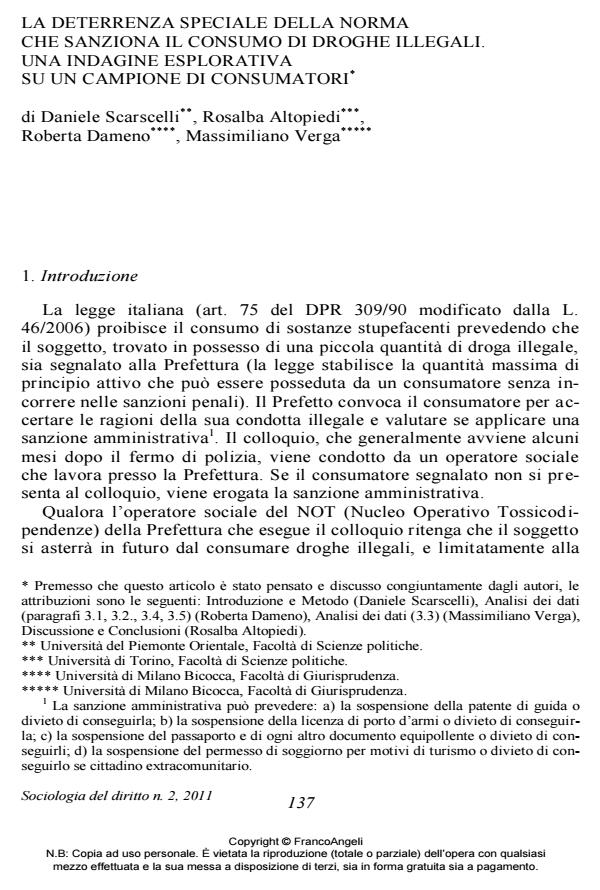Sanctions and illegal drug use. An exploratory survey on a sample of consumers
Journal title SOCIOLOGIA DEL DIRITTO
Author/s Daniele Scarscelli, Rosalba Altopiedi, Roberta Dameno, Massimiliano Verga
Publishing Year 2011 Issue 2011/2
Language Italian Pages 28 P. 137-164 File size 259 KB
DOI 10.3280/SD2011-002007
DOI is like a bar code for intellectual property: to have more infomation
click here
Below, you can see the article first page
If you want to buy this article in PDF format, you can do it, following the instructions to buy download credits

FrancoAngeli is member of Publishers International Linking Association, Inc (PILA), a not-for-profit association which run the CrossRef service enabling links to and from online scholarly content.
Italian law prohibits the use of narcotic substances, stipulating that the Prefecture be informed about any individual who is found in possession of a small amount of illegal drugs. The Prefect then summons the user to ascertain the reasons for his or her illegal behaviour and to judge whether to apply an administrative sanction. The purpose of this conversation is supposed to be to dissuade the user from repeating the behaviour. The article presents the findings of a study conducted to analyse the effectiveness of this procedure as a deterrent, considering the opinions of a sample of 330 drug users identified to the Prefectures in nine Italian cities. The results of the research illustrate that the special deterrent effect of this administrative procedure is singularly limited. In particular, the study calls attention to certain mechanisms that enable us to understand why the administrative procedure appears to have a negligible deterrent impact on the users identified.
Keywords: Sanctions, Illegal drug use, Special deterrence, Effectiveness
Daniele Scarscelli, Rosalba Altopiedi, Roberta Dameno, Massimiliano Verga, La deterrenza speciale della norma che sanziona il consumo di droghe illegali. Una indagine esplorativa su un campione di consumatori in "SOCIOLOGIA DEL DIRITTO " 2/2011, pp 137-164, DOI: 10.3280/SD2011-002007